Scholar Spotlight - Amber Wong
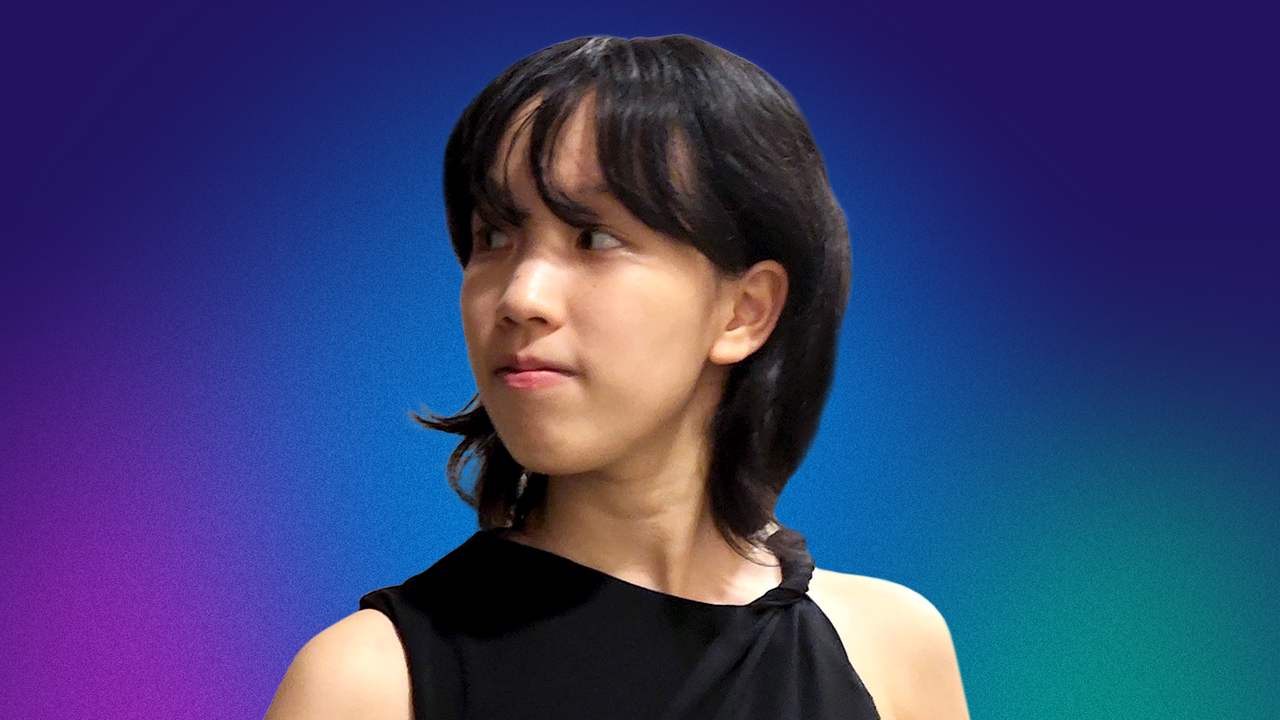
Amber Wong, a Laidlaw Scholar at the University of Hong Kong on reading through gaming in primary school
Research title:
Reading Through Gaming in Primary School
Game-based learning is being adapted in many classrooms across the globe. Researchers have found a positive impact from incorporating games into classrooms, with a growing trend in studying the implications and effectiveness of board games on reading comprehension. However, few studies focus on the differences in reading performance during gameplay among individuals. The question we ask is, “If we know that games facilitate learning, which game is appropriately challenging?”
“Reading Through Gaming in Primary School” aims to identify features of board games that can predict their reading difficulty. We attempt to create a formula that laypeople can use to evaluate board games and choose the appropriate one that balances entertainment and learning.
In this pilot study, we established a positive correlation between participants’ reading levels and their reading accuracy during gameplay. Seventy-two students aged 5 to 8 years old (Year 1 to Year 3) from a local UK primary school participated in this study, and 114 running records were collected. Four out of seven games were found to have a strong correlation (r > +.5, p < .05). However, more data is required to draw a definitive conclusion.
We have established a working flow and framework in this pilot study that can be used for future research on developing a reading scale for board games. This scale will promote the efficiency of game-based learning and ensure that students are appropriately challenged during class.
Where did your passion for this research originate? How does your personal story feed into it?
I have always been more than a dreamer. My dreams began as portals of possibility and ended in reality. When I was seven and an aspiring architect, I forged a Lego empire from scratch. At thirteen, as a wannabe author, I devoted hours to furious scribbling at my writing desk. My dreams and actions constituted the lifeblood of my “daydreams”—dreams that came to life in broad daylight. From the mega-turbine-streamlined princess castle and the “What if we have global cooling instead?” sci-fi world, to my pile of Grammy award-winning speech drafts.
As I grew up, I continued to be inspired by the smallest things in life and questioned the seemingly obvious. I enjoy the creative process of generating ideas and redeveloping them into projects that create meaningful and impactful change. Research came in like a missing piece of the puzzle. It helped me find answers to my countless "what-ifs," structured my creative thoughts into testable hypotheses, and, more importantly, reinforced the cliché phrase that "nothing is impossible." There are no bounds in this world, and however ridiculous a thought may seem, it is a valuable one.
The Laidlaw research experience made me realize that research is not as intimidating as it seems. After the program, I joined more research teams and even received funding from my university (alongside another fellow HKU Laidlaw Scholar) to develop our own hypothesis. It is the perfect channel for my creativity, curiosity, and desire to make a change.
What is the most memorable moment from your Laidlaw scholarship experience so far?
The most memorable moment was attending the Annual Conference at Columbia University. Participating in an academic conference exceeded my expectations, especially presenting my research project during the parallel panel discussions in front of some of the brightest students. It felt surreal and, honestly, nerve-wracking. I can proudly say that I had the "full experience" as a scholar: designing my own research, collecting empirical data, and presenting at a conference. Listening to other scholars’ projects was equally enlightening. Listening to other scholars was equally enlightening; they shared unique passions that I might not have discovered otherwise. This experience expanded my perspectives and vividly illustrated how minds can clash and collaborate.
Visiting NYC, beholding the Statue of Liberty, relaxing and attempting to study on the grass in Central Park, and purchasing a ring crafted from a vintage silver spoon at Chelsea Market were experiences that will forever be etched in my memory, especially the autumn of 2024.
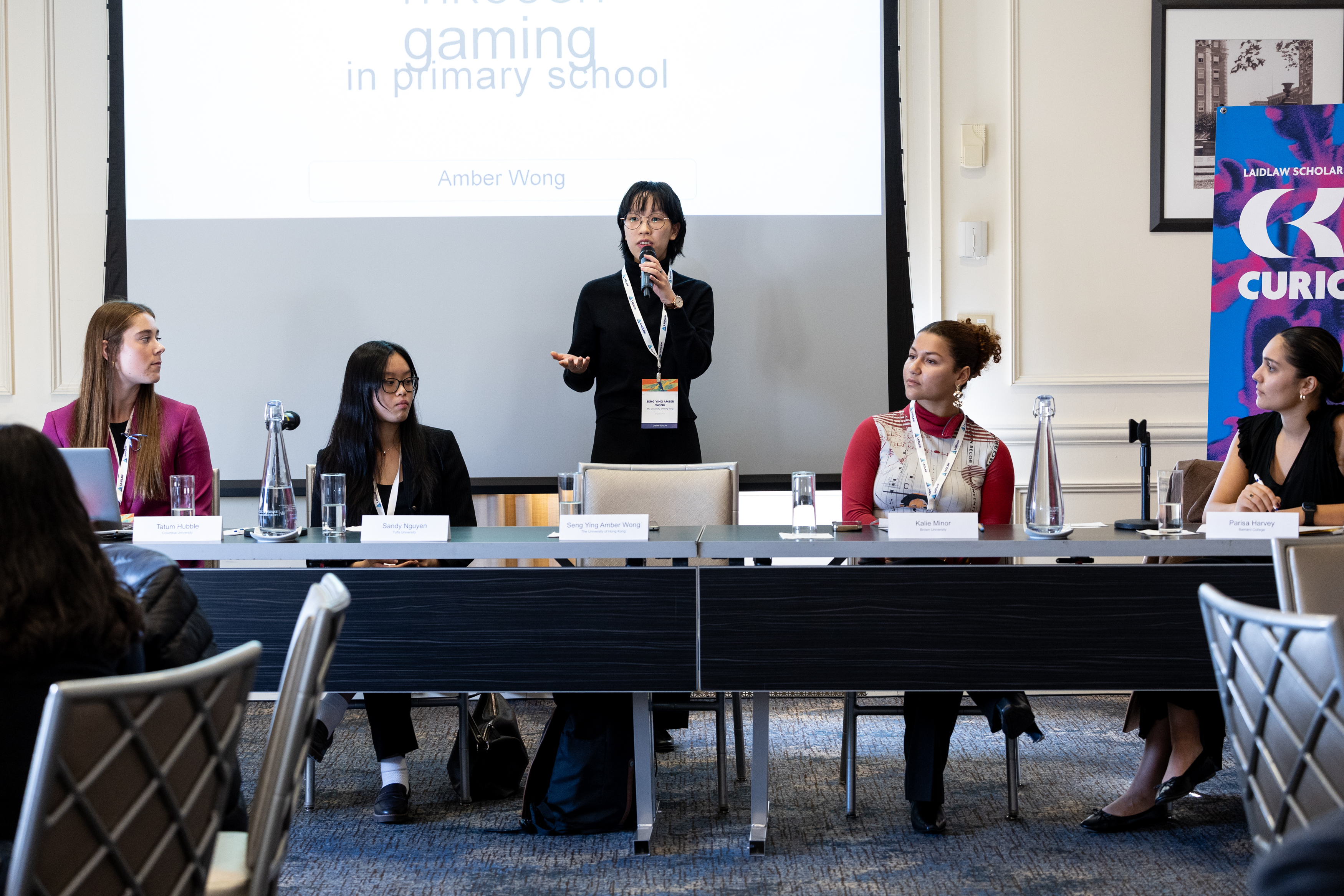
Presenting at The 2024 North American Laidlaw Scholar Annual Student Conference.
What is the biggest challenge you came across in your research and leadership journeys so far, and what did you learn from it?
My biggest challenge is bridging the gap between "expectations" and "reality" in my LiA. My initial choice of NGO was the Taiwan Fund for Children and Families (TFCF). I took an online course on Music for Wellness from Berkeley and wrote a 10-page proposal on using “sound hunting” to gamify mindfulness for children. I was eager to test my theories and lead, but things haven’t gone as planned.
Upon arriving in Taiwan, I spoke with the social worker about hosting a session. She explained the organization's operations and the challenges of adopting my proposal, ultimately suggesting that implementation might be impossible. I felt defeated. I genuinely believe in my idea, but reality reminded me that not everything runs smoothly. A quote from my high school teacher came to mind: “The purpose of exams is not just the knowledge you memorize, but the soft skills you acquire along the way.”
I realized I needed to let go of my perfect plan, adapt, and be resilient. While it didn’t feel good, I learned that the essence of Leadership in Action goes beyond tangible results; it lies in the growth and transformation that emerge from each experience.
What does it mean for you to be a Laidlaw Scholar?
Two years ago, being a Laidlaw Scholar felt like a distant star—an unattainable dream beyond my reach. A year ago, it was the source of my imposter syndrome, casting shadows of doubt upon my ability. But now, it stands as a milestone, reshaping my life’s trajectory, opening doors to opportunities, connections, and passionate souls that resonate in the same frequency as mine.
Being a Laidlaw Scholar has pushed me beyond my imagination. My experiences—research at Leeds, a conference in New York, and volunteering in Taiwan—have equipped me with confidence, soft skills, and, most importantly, empathy. By shifting perspectives and roles through different cultural landscape, I learned what it means to be the "minority" and to experience both giving and receiving help. I have lived through the clichés of leadership, giving them fresh meaning and depth. This journey motivates me to connect with others' situations on a deeper level, embodying the essence of a Laidlaw Scholar—developing as a leader through real experiences.
Which particular leaders inspire you the most and why?
I couldn't name a particular person. I have always believed that there's good in everyone, and it's our job to discover it; at the same time, there is bad in everyone, and we can learn from both sides. I learned decisiveness from my father, but also his stubbornness and sharp tongue; I learned generosity from my mother, but also her rebellious spirit against nonsensical things. I have collected pieces from everyone who has crossed my path, and I thank them for the experiences they brought—some pleasant, some unpleasant—but all have become parts of me, shaping who I am today. I am not perfect, but I appreciate this version of myself. I would not be who I am now without that annoying overachiever in class or that particularly stern professor.
My answer would be that everyone has inspired me, and that I grow from every small encounter in life.
Briefly describe a scene from the future you are striving to create.
I don’t have a grand, detailed blueprint for the future. I hope to work in a job or for a cause that ignites my passion, in an environment where I can unleash my creativity and feel I’ve reached my full potential. I also wish for everyone to have the freedom and opportunity to pursue a path they desire.
Quick-fire Questions
📺 Currently Binging:
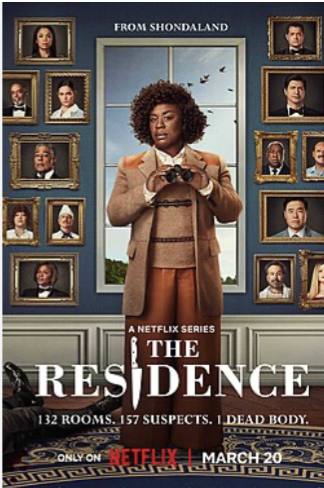
📚 My top book recommendation:
"Thinking, Fast and Slow" by Daniel Kahneman
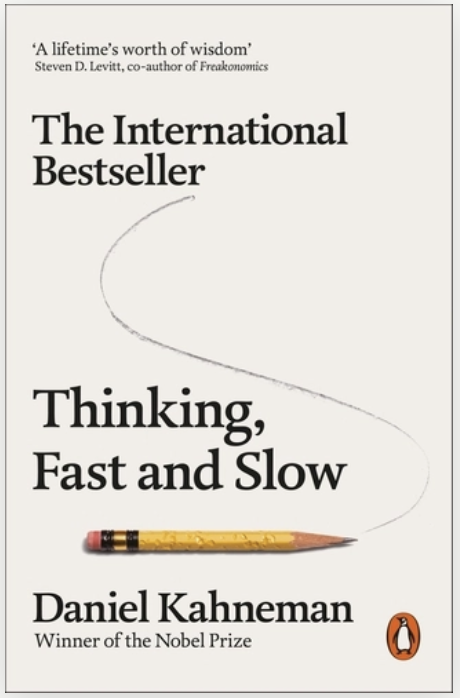
🎶 My anthem:

🌈 Something that made me feel joy recently:
Creating a little recording/ reading nook in my new dorm (with a fluffy carpet and warm blanket!)
If you want to learn more about Amber's work, explore her research here and follow her on Linkedin. Amber is a Laidlaw Undergraduate Leadership and Research Scholar at @The University of Hong Kong. Become a Laidlaw Scholar to conduct a research project of your choice, develop your leadership skills, and join a global community of changemakers from world-leading universities.
Find out more about the Laidlaw Scholars Undergraduate Leadership and Research Programme.
🔦 Discover more Scholar Spotlights:
⚡️ Aya Hammad, a University of York Laidlaw Scholar, on understanding the origins of cancer, promoting equality in healthcare, and learning to be adaptable.
⚡️ Patrícia Gonçalves, a Laidlaw Scholar at Oxford University's Saïd Business School, on navigating the crossroads of public and private sectors and championing a sustainable, equitable future.
⚡️ Anuj (AJ) Manchanda, a Laidlaw Scholar at the University of Toronto, delves into how Environmental CSR initiatives shape consumer choices.
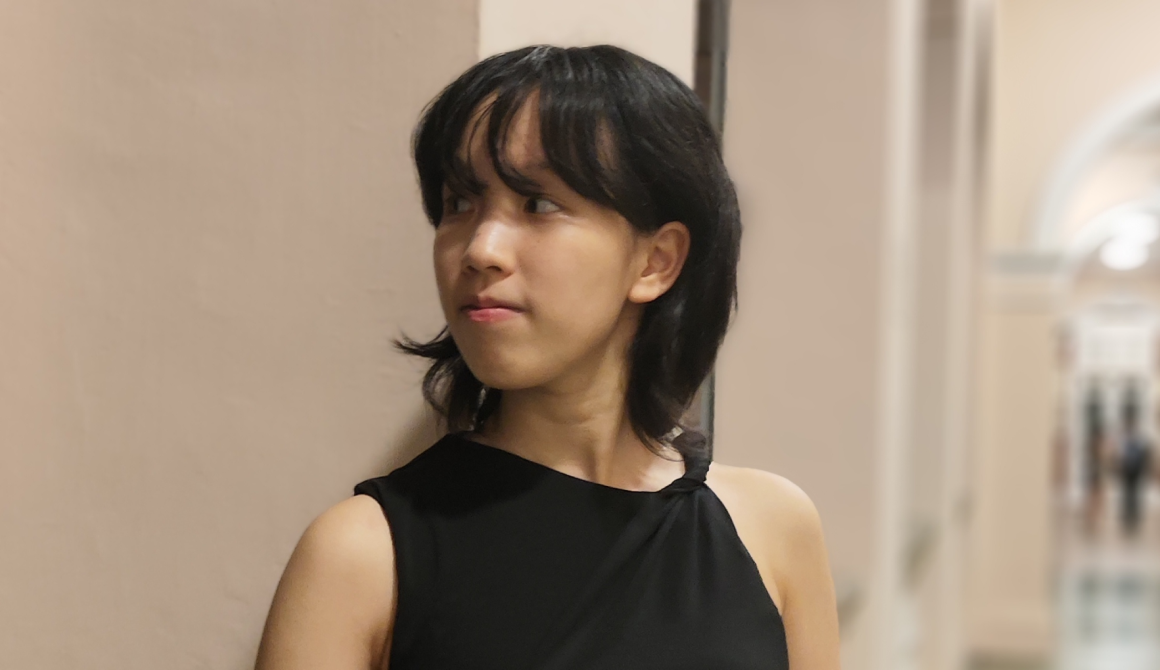
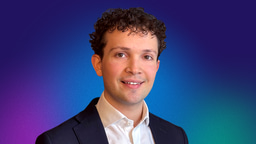
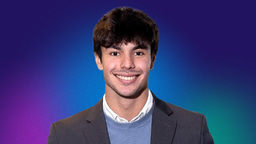
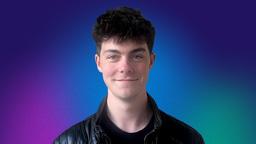

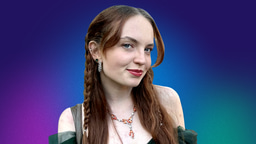
Please sign in
If you are a registered user on Laidlaw Scholars Network, please sign in
Beautiful to hear more about your journey Amber. Still delighted to have meet you coming all the way from Hong Kong in Leeds :). How small the world becomes during this journey with the scholarship